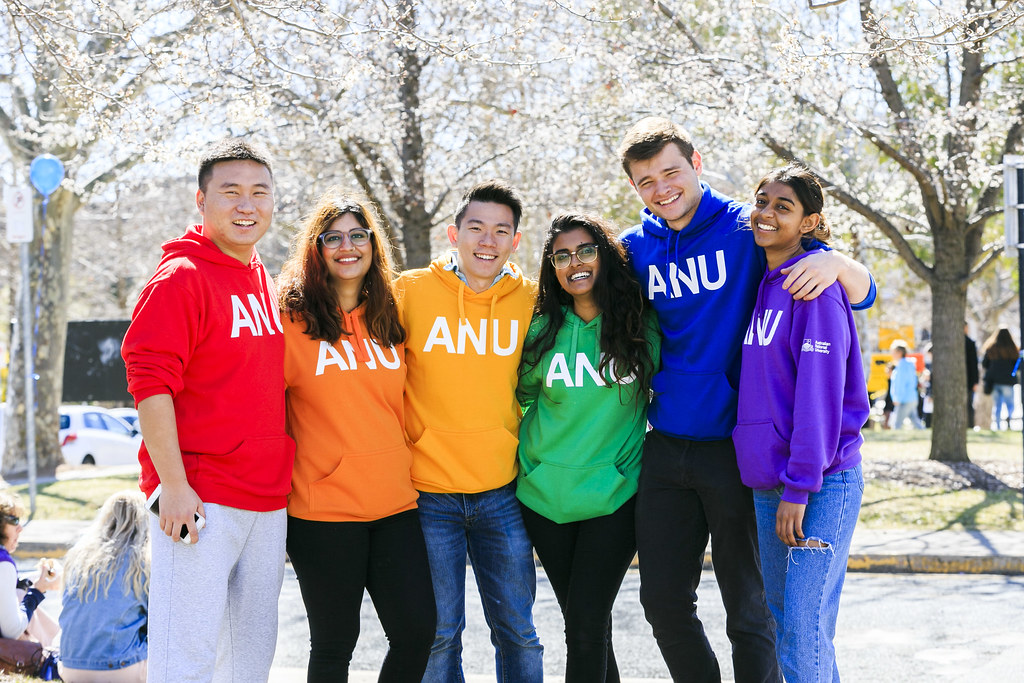
Science Communication Masterclass
7-18 July 2025
Explore ideas at the frontier of science communication at ANU
- The Australian National Centre for the Public Awareness of Science (CPAS) at ANU was the first science communication centre in Australia and is now the most diverse of its kind in the world.
- Join our ANU CPAS Summer Program to learn about science communication and engagement, join tours across Canberra, and see how studying science communication will give you a competitive edge.
Masterclass in science communication
Participants attending the CPAS Summer Program can expect to gain a range of skills and knowledge in the world of science communication — and open the door to a deeper engagement with the field.
At the end of the course participants will have the skills and knowledge to
- Discuss the concepts underpinning science communication practice
- Consider science communication strategies and tactics for different audiences, using a range of means, media, and technologies.
- Gain understanding of the ethical responsibilities of science in the modern world
Where can the Masterclass take me?
For those interested in further developing their science communication skills and knowledge, CPAS offer two postgraduate course work degree programs:
CPAS’s unique masters program allows you to design your own science communication program, tailoring your degree towards a range of science communication careers. Students can choose from two in-depth capstone experiences - Research Projects and/or Fieldwork Placements - to suit pathways into academia, research, industry and policy contexts, or environmental communication, science centres, outreach, science media, and more. You can further specialise or diversify with courses spanning media, popular culture, online, policy, engagement, culture, internships, and student-designed projects - alongside other ANU courses - with many available online.
Eligibility
- undergraduate and postgraduate students
- currently pursuing an academic program at a university or equivalent, in one or more of the following areas: Health, Education, Medicine, Communications, Media, Journalism, Mathematics, Physics and Astronomy, Chemistry, Earth Sciences, Biological Sciences, Environmental Studies, Other Natural and Physical Sciences, Information Technology, Engineering and Related Technologies, or other STEM related fields (please contact us if your discipline is not listed but you would like to participate)
- preference given to students from ANU partner universities
Academic requirements
Applicants must demonstrate a ‘credit’ GPA of 5.0/7.0 (or similar) in order to be eligible for consideration.
Assessment
The CPAS Summer Program is not formally assessed. Completion of the course does not provide ANU course credit, and you will not receive an ANU transcript.
However, participants attending the course will work on informal group and individual projects to practice the lessons of the course, and feedback will be given to participants throughout to assist their development as emerging communicators of science.
Certificate
On successful completion of the course, all participants will be issued with an ANU Certificate of Participation.
Course costs
The total program cost is AUD$ 5,000. This cost is inclusive of:
- tuition fee
- accommodation and meals
- interactive academic activities
- cultural tours to different national institutions across Canberra
Language of instruction
The summer program will be conducted in English. Participants are not required to undertake an English language test. However, it is strongly recommended that all participants have competent skills in writing, reading, listening and speaking in the English language.
How to apply
Please complete the online application form to apply for this program.
Bulk applications are also possible. Email international.STEMM@anu.edu.au for more details.
Important dates
Application deadline: Sunday 11 May 2025
Outcome notification: Friday 23 May 2025
Acceptance deadline: Sunday 8 June 2025
Course dates: Monday 7 July - Friday 18 July 2025
Selection basis
Applicants are assessed on the responses to the statement of purpose in addition to their academic transcript.
Course capacity: 40 participants
Program flyer
Download the program flyer for more information.
Sample itinerary for week 1 (subject to change)
| Time (AEDT) | Monday | Tuesday | Wednesday | Thursday | Friday |
|---|---|---|---|---|---|
| Week 1 - Day 1 | Week 1 - Day 2 | Week 1 - Day 3 | Week 1 - Day 4 | Week 1 - Day 5 | |
| 09:30AM - 12:00PM | Welcome and orientation: Introduction to science communication
| Science communication ethics | Misinformation and science communication | Science in popular culture: science communication in contemporary movies | Workshop: storytelling and improvisation techniques |
| 01:30PM - 04:00PM | Science communication in social media | Science engagement: Tour of Questacon –The National Science and Technology Centre | Hands-on climate engagement: practical activities, tinkering and science shows | Science engagement: Tour of Tidbinbilla Nature Reserve and Deep Space Complex | Cultural tour of Canberra |
Each session will be interactive, encouraging discussion and small group activities. The Science Engagement sessions will connect students with organisations who communicate science to diverse audiences in different ways, providing the opportunity to explore the different forms of science communication practice.

